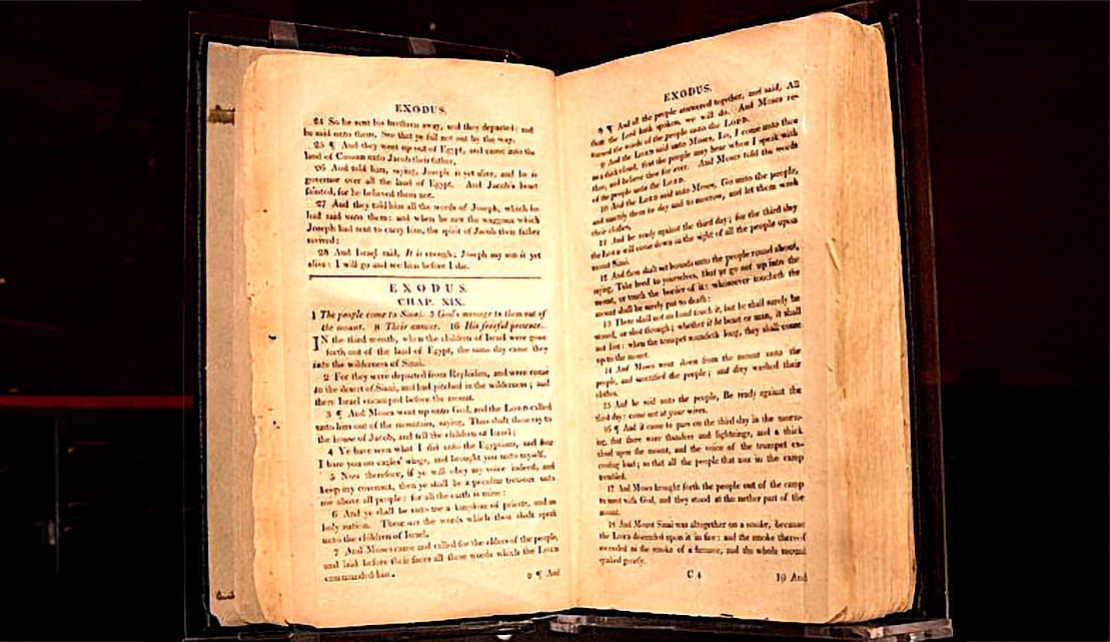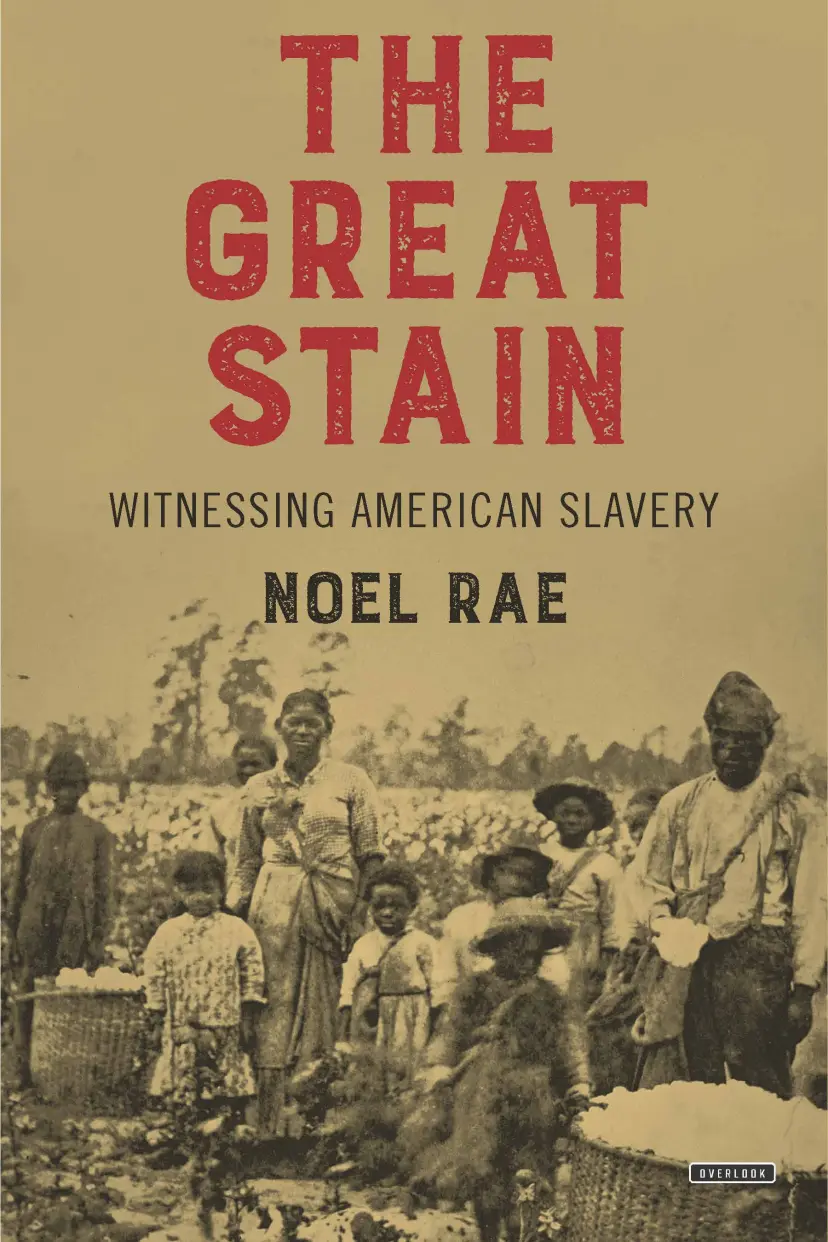How Christian Slaveholders Used the Bible to Justify Slavery

In an illuminating piece derived from Noel Rae's "The Great Stain," featured in Time Magazine, the grim interplay between religious conviction and the institution of slavery in America is meticulously dissected.
Rae's narrative vividly outlines the manner in which scriptures were contorted by Christian slaveholders to legitimize a deeply entrenched system of oppression, highlighting a stark disjunction between the professed tenets of Christianity and the harsh realities of the slave trade.
Central to the justification of slavery were two biblical passages, manipulated and misinterpreted to serve the ends of slaveholders:
- Genesis 9:18-27 becomes the cornerstone of the "Curse of Ham" myth, misapplied to suggest a divine sanction for African enslavement: "“And the sons of Noah that went forth from the ark were Shem, Ham, and Japheth: and Ham is the father of Canaan. These are the three sons of Noah: and of them was the whole world overspread. And Noah began to be an husbandman, and he planted a vineyard: and he drank of the wine, and was drunken; and he was uncovered within his tent. And Ham, the father of Canaan, saw the nakedness of his father, and told his two brethren without. And Shem and Japheth took a garment, and laid it upon both their shoulders, and went backward, and covered the nakedness of their father; and their faces were backward, and they saw not their father’s nakedness. And Noah awoke from his wine, and knew what his younger son had done unto him. And he said, Cursed be Canaan; a servant of servants shall he be unto his brethren. And he said, Blessed be the Lord God of Shem; and Canaan shall be his servant. God shall enlarge Japheth, and he shall dwell in the tents of Shem; and Canaan shall be his servant. And Noah lived after the flood three hundred and fifty years.” This narrative was distorted, with Canaan's curse erroneously attributed to Ham and subsequently to all Africans, positing their enslavement as a fulfillment of biblical prophecy.
- Ephesians 6:5-7 is wielded to reinforce this divine endorsement, urging slaves to "be obedient to their masters. “Servants, be obedient to them that are your masters according to the flesh, with fear and trembling, in singleness of your heart, as unto Christ; not with eye-service, as men-pleasers; but as the servants of Christ, doing the will of God from the heart; with good will doing service, as to the Lord, and not to men: knowing that whatsoever good thing any man doeth, the same shall he receive of the Lord, whether he be bond or free.”
This passage was taken as a direct command for slaves to accept their earthly bondage with piety and devotion, as though service to their masters was akin to service to Christ himself.
Rae delves into the selective exploitation of these texts, showcasing a deliberate effort to intertwine the institution of slavery with a divine mandate, thereby ensuring compliance and quelling dissent among the enslaved.
The narrative critically examines the church's complicity in this theological justification, revealing a profound moral contradiction at the heart of American Christianity.
Through the incisive criticism of Frederick Douglass, the adaptation exposes the egregious hypocrisy within American Christianity—a faith that could sanction such inhumanity under the guise of divine will.
Douglass's condemnation of this "corrupt, slave-holding, women-whipping, cradle-plundering, partial and hypocritical Christianity of this land" serves as a scathing rebuke of the moral perversion perpetrated in the name of religion.
Reviewing the work of the white churches Douglass said “Between the Christianity of this land and the Christianity of Christ, I recognize the widest possible difference—so wide that to receive the one as good, pure, and holy, is of necessity to reject the other as bad, corrupt, and wicked. To be the friend of the one is of necessity to be the enemy of the other. I love the pure, peaceable, and impartial Christianity of Christ; I therefore hate the corrupt, slave-holding, women-whipping, cradle-plundering, partial and hypocritical Christianity of this land. Indeed, I can see no reason but the most deceitful one for calling the religion of this land Christianity…”
 By highlighting the misuse of Genesis 9:18-27 and Ephesians 6:5-7, Rae's work forces a confrontation with the uncomfortable reality that scripture was weaponized to perpetuate the horrors of slavery.
By highlighting the misuse of Genesis 9:18-27 and Ephesians 6:5-7, Rae's work forces a confrontation with the uncomfortable reality that scripture was weaponized to perpetuate the horrors of slavery.
This manipulation of biblical text not only provided a convenient veneer of legitimacy for slaveholders but also deeply ingrained the notion of racial superiority and divine endorsement of slavery within the fabric of American society.
The narrative's exploration of the church's role in perpetuating these interpretations underscores a glaring moral failure—using religion to justify and maintain a system of brutal oppression.
By presenting a version of Christianity that endorsed slavery, figures like Bishop William Meade and Bishop Stephen Elliott portrayed the enslavement of Africans as part of a divine plan, thereby normalizing the dehumanization and exploitation of countless individuals.
Rae's adaptation from "The Great Stain" thus serves as a critical examination of the biblical justification for slavery, revealing the ethical and moral contradictions of Christian slaveholders and the church.
It underscores the profound impact of selective scripture interpretation on the perpetuation of slavery, challenging readers to reflect on the historical and ongoing implications of these justifications within American society.
Meanwhile, Joseph Lumpkin, in his introduction to the "Negro Bible - The Slave Bible," a special Bible compiled for slaves in the West Indies and America, said The Slave Bible, is one of the most powerful examples ever witnessed of manipulation using a controlled narrative.
The Christian faith, a religion one-third of the world relied on to bring comfort, spiritual rest, peace, and salvation was the narrative being controlled, making the Slave Bible the ultimate propaganda tool and the greatest lie ever told.

 En
En  Ar
Ar